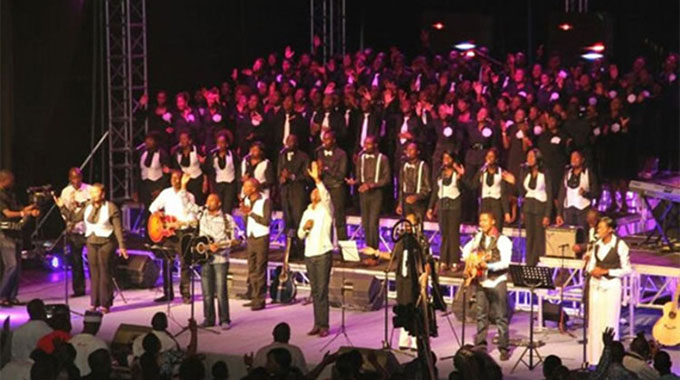When secular guitar styles invaded the church

Clive Mono Mukundu
Own Correspondent
THE Family of God church was known for providing influential bass players like Shangwa Sithole, the Salvation Army is known for providing the local market with brass players.
Adventists are known for introducing the American Accapella style in Zimbabwe, but ZAOGA was known for having good guitarists and introducing hard-core sungura and mbira guitar styles in church.
There was a time when playing a sungura guitar, mbira guitar or rhumba guitar line, or any African style in church was considered synonymous with smoking weed on the pulpit, it was taboo.
For such songs written in a proper unmistakable Zimbabwean groove like ‘Tarira uone Ruoko Rwa Mwari’, and Jiti songs like “Tose Dzvamu’ church guitarists would have to play in a western-influenced style.
You could fuse it with jazz, blues, funk or even rock, but playing any African hard-core Zimbabwean styles or any African style was considered ‘zvemunyika’ (worldly) so it was not allowed.
This is attributed to the fact that the first missionaries to preach in Africa had a tendency of demonising anything African that they did not understand as demonic.
This affected the attitude of Zimbabweans against such traditional instruments like mbira; right now in 2021 mbira is still not played in many churches.
But concerning guitar styles, it all changed mid the 1990s.
I am happy that I also contributed to that too. I converted to Christianity through the efforts of Evangelist Admire Kasi and joined ZAOGA on Tuesday the 28th of June 1994.
That same period of time other guitarists like Pax Matenga, Raphael Maurisu, and later on Tendai Manatsa, also converted to Christianity and joined ZAOGA.
All of us came to church from secular bands, so we were fluent in the hardcore sungura and mbira styles, but we were scared to play the styles in church.
This changed one night at an annual ZAOGA conference at AMFCC Bible College in 1994 when Apostle Ezekiel Guti gave us permission.
He started by asking, “Why is it that in church we do not hear the type of guitar styles that are played by the likes of John Chibadura”.
He had been invited to a Government function and witnessed John Chibadura bring the house down.
So, at that conference, which called Deeper Life Conference, we started playing all sungura, jiti and mbira grooved music with proper Zimbabwean guitar styles as opposed to the Western guitar styles that were previously employed all along, and did the people dance?.
Of course, it caused uproar in some churches.
Every new thing is always opposed by the church.
Did you know that when the organ was first introduced in the church around 900 CE, some hard-core Christian conservatives argued that the pipe organ had a demon in every pipe.
Even the famous reformist Martin Luther (1483-1546) who was an accomplished instrumentalist and composer in his own right was well known for his negative views towards the organ.
Even electricity was once deemed to be from hell since it kills.
Those who follow my writings know of a Glad Tidings church outreach service in Mufakose held on Saturday 16 May 1998 when church elders told the sound-men to switch off my guitar when I played a mbira guitar style.
After the crusade, the band was called for a meeting and warned never to allow musicians who play ‘worldly’ styles to play on their line up, but thank God for a short while later all pentecostal churches started allowing those Zimbabwean guitar styles, including that particular church.
But it was Pastor Bandimba from Family of God who was the first to record a hard-core rhumba song titled “Jesu Dombo”, and oh my gosh, did the man get chastised, the song was given all kinds of labels.
— Clive ‘Mono’ Mukundu is a Zimbabwean guitarist and music producer. He has worked with several artistes.









Comments